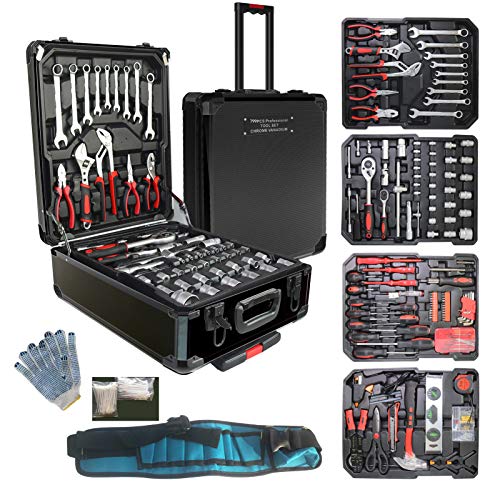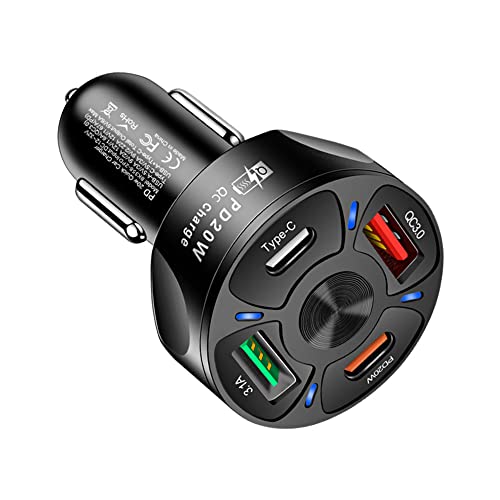I have owned a Leaf for a while now and have begun to see some advantages with the Fucus's battery temperature management system and I like the styling, so I guess you could say my eyes have been wondering. lately though, the West Coast Green Highway has officially opened up in WA and OR. You can now drive from Canada to Northern California with 480V DC Quick charging stations every 25 to 60 miles! Being able to handle extreme heat and cold has peaked my interest in the Focus but I'm wondering if Ford is planning to include a fast charging port for the Focus. I know the SAE is taking it's sweet time to get a fast charging port standard nailed down and proliferated throughout the industry... meantime, west coast states, where most sales are occurring, have decided to move ahead with the CHAdeMO standard. I've used CHAdeMO DC QC chargers and they seem to be quite adequate, providing an 80% charge in 30 minutes or less. If anyone knows if Ford will offer CHAdeMO compatable fast charging on the west coast, I'd really appreciate any details, even speculation. The 6.6 kW charger the current focus comes with is slow compared to fast charging... I have been able to take trips to Portland OR from Seattle, round trip in one day thanks to Quick Charging. As far as I'm concerned fast charging is crucial to the adoption of EV's into the mainstream and it would be great if the Focus will be compatable with the branching network on the west coast that is set to spread all the way to Mexico!
You are using an out of date browser. It may not display this or other websites correctly.
You should upgrade or use an alternative browser.
You should upgrade or use an alternative browser.
The West Coast Green Highway, will the Focus be compatable?
- Thread starter AmpedUP
- Start date

Help Support Ford Focus Electric Forum:
This site may earn a commission from merchant affiliate
links, including eBay, Amazon, and others.
chex
Member
Yup, I cant agree more with this statement. Clearly Ford was trying to go with a simple, fast L2 charging mode with the Focus, but I dont think they were really thinking about the car being able to roadtrip. With no quick-charging, the most you could do with the FFE is drive out to the end of the range, stop, plug in to a L2, and wait 2-3-4 hours until its charged up completely, then drive back for one more leg, and then you are effectively done traveling with the car for the day.
Hopefully they will look to add this in a future model soon.
-- Stefan in Montreal
Hopefully they will look to add this in a future model soon.
-- Stefan in Montreal
AmpedUP said:The 6.6 kW charger the current focus comes with is slow compared to fast charging... I have been able to take trips to Portland OR from Seattle, round trip in one day thanks to Quick Charging. As far as I'm concerned fast charging is crucial to the adoption of EV's into the mainstream and it would be great if the Focus will be compatable with the branching network on the west coast that is set to spread all the way to Mexico!
Rwbill
Well-known member
Fluke said:Will fast DC charging have an impact on the life of the battery?
Based on all known battery technologies to date, yes. But I don't know for certain about the Lithium Ion polymers used in the Focus Electric, I assume yes.
The super-rapid charging is not an issue for me and my intended uses, but the ability to use EV for long distance cross country or regional driving is certainly impaired unless there is some sort of super fast charging.
I would be greatly concerned about battery life, however, until I read something that tells us otherwise.
the Focus but I'm wondering if Ford is planning to include a fast charging port for the Focus.
gclub download
gclub download
triangles
Well-known member
Starting with the '17 model the FFE has CCS for DC fast charging. It's basically an extension of the J1772 standard allowing for L1, L2, and L3 charging all from the same port. I do like CHAdeMO but as a technology it's days are numbered as Nissan is the only manufacture pursuing it. I may be wrong and someone hopefully will correct me here, but I think CHAdeMO is limited to 100 kW and the CSS standard goes up to 350 kW. That doesn't matter today as most current CHAdeMO and CCS stations max out at about only 50 kW.
Fast charging damages the battery. Albeit very minimally. The amount of excess wear and tear fast charging causes the battery varies based on the battery design and capacity. For example L3 charging a 20-30kWh battery is more damaging than L3 charging a 60-85kWh battery. The difference in L2 vs L3 charging is in the neighborhood of single digit percent addition battery degradation over hundreds of charge cycles so most people won't even notice. Supposedly solid electrolyte batteries of the future are immune to the damage caused by fast charging our current liquid electrolyte batteries today. Once 200+ mile EV's are standard most people will have little need for L3 charging and will simply L2 charge at home. Any battery degradation caused by L3 charging done on the occasional cross country trip will be negligible. Of course you will have some that only L3 charge and then they will wonder why their battery is showing noticeable degradation after only a few years.
Fast charging damages the battery. Albeit very minimally. The amount of excess wear and tear fast charging causes the battery varies based on the battery design and capacity. For example L3 charging a 20-30kWh battery is more damaging than L3 charging a 60-85kWh battery. The difference in L2 vs L3 charging is in the neighborhood of single digit percent addition battery degradation over hundreds of charge cycles so most people won't even notice. Supposedly solid electrolyte batteries of the future are immune to the damage caused by fast charging our current liquid electrolyte batteries today. Once 200+ mile EV's are standard most people will have little need for L3 charging and will simply L2 charge at home. Any battery degradation caused by L3 charging done on the occasional cross country trip will be negligible. Of course you will have some that only L3 charge and then they will wonder why their battery is showing noticeable degradation after only a few years.

$42.99
$49.99
Hi-Spec Tools 67pc SAE Auto Mechanics Hand Tool Kit Set. Complete Car, Motorcycle, Engine & Garage Repairs with Sockets, Ratchet Wrench, Pliers & More
Hi-Spec Products, Inc.

$59.99
$79.99
WORKPRO 12V Cordless Drill Driver and Home Tool Kit, Hand Tool Set for DIY, Home Maintenance, 14-inch Storage Bag Included
GreatStar Tools

$169.99
$219.99
Arcwares 799pcs Aluminum Trolley Case Tool Set Silver, House Repair Kit Set, Household Hand Tool Set, with Tool Belt,Gift on Father's Day (Black)
Yizhiliha-Store
EVA
Well-known member
AmpedUP - I think you might be looking at the pre-2017 FFE. The new Focus Electric has a CCS connector. Yes 6.6KW charging in AC. But DC is up to 50KW. So it probably passes what the Leaf can do for charging.
From the Focus Electric webpage:
SAE J1772 CCS (Combo Connector System) Charge Port capable of charging on 120V, 240V and Direct Current (DC Fast Charge)
Permanent Magnet Electric Traction Motor (Focus Electric)
AC Charging: 6.6 kW Onboard Charger
DC Charging: up to 50kW capability
Guess your question is more, are all those stations on the Green Highway equipped with CCS? Can't answer that question - you'll have to research that yourself.
I think you got the evaluation right though - Nissan assumed air could take care of the cooling the batteries enough to not damage them. They were clearly wrong, at least in the early models.
Ford, BMW, and Tesla all took a different perspective - actively manage temperature in the battery. I haven't heard of too many people complaining about significant battery degradation in Teslas, ever (and there are well over 200,000 mile examples with tons of supercharging). I'm not so clear about FFE batteries. The key issue with the FFE battery is the silly guess o meter telling you how much range you have. The only way anybody could know for certain how much degradation there was in the FFE battery was to do a full test at brand new, one slightly later, and then a couple years down the road. And even then, Ford built in a bunch of battery protection, and a person might not get a true reliable test.
Tesla hits the battery with around 100KW pretty regularly during supercharging (at least up to around 60% of battery charge). With all those people doing that regularly, you'd think there would be battery problems. There aren't.
As long as Ford manages the charge rate and state of charge properly, using 50KW should not even remotely be a problem. It will manage the heat properly and not harm the batteries.
Yeah there is theory, and then there is engineering and practical. Nissan made some bad assumptions about how people will charge the cars.
From the Focus Electric webpage:
SAE J1772 CCS (Combo Connector System) Charge Port capable of charging on 120V, 240V and Direct Current (DC Fast Charge)
Permanent Magnet Electric Traction Motor (Focus Electric)
AC Charging: 6.6 kW Onboard Charger
DC Charging: up to 50kW capability
Guess your question is more, are all those stations on the Green Highway equipped with CCS? Can't answer that question - you'll have to research that yourself.
I think you got the evaluation right though - Nissan assumed air could take care of the cooling the batteries enough to not damage them. They were clearly wrong, at least in the early models.
Ford, BMW, and Tesla all took a different perspective - actively manage temperature in the battery. I haven't heard of too many people complaining about significant battery degradation in Teslas, ever (and there are well over 200,000 mile examples with tons of supercharging). I'm not so clear about FFE batteries. The key issue with the FFE battery is the silly guess o meter telling you how much range you have. The only way anybody could know for certain how much degradation there was in the FFE battery was to do a full test at brand new, one slightly later, and then a couple years down the road. And even then, Ford built in a bunch of battery protection, and a person might not get a true reliable test.
Tesla hits the battery with around 100KW pretty regularly during supercharging (at least up to around 60% of battery charge). With all those people doing that regularly, you'd think there would be battery problems. There aren't.
As long as Ford manages the charge rate and state of charge properly, using 50KW should not even remotely be a problem. It will manage the heat properly and not harm the batteries.
Yeah there is theory, and then there is engineering and practical. Nissan made some bad assumptions about how people will charge the cars.
Similar threads
- Replies
- 41
- Views
- 33K
- Replies
- 1
- Views
- 5K































